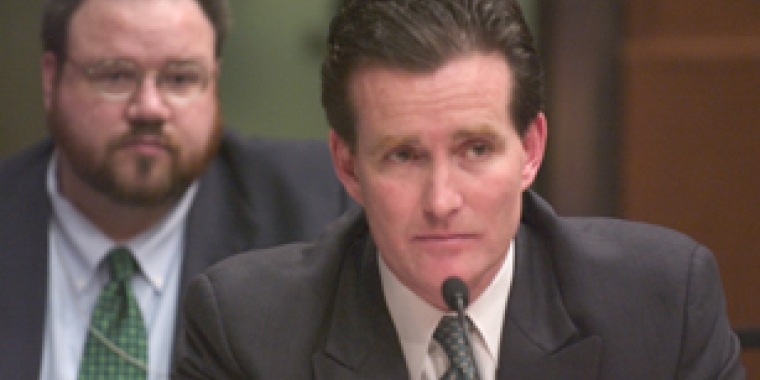
Legislation By Morelle And Flanagan Strengthening Education Requirements For Future Registered Nurses Signed Into Law
December 27, 2017
-
ISSUE:
- Nursing
- Education
- Health Care

Senate Majority Leader John J. Flanagan and Assembly Majority Leader Joseph D. Morelle announced that Governor Andrew Cuomo has signed legislation (S6768/A1842B) that strengthens education requirements for future registered nurses – which has been directly linked to improved care and patient outcomes. This legislation will require registered nurses to attain a bachelor’s degree or higher in nursing within ten years of their initial licensure. In addition, the bill establishes a temporary commission to evaluate and report on barriers to entry into the nursing profession.
“I am grateful to Governor Cuomo, Senate Majority Leader Flanagan, my colleagues in the legislature and the countless advocates for coming together to ensure that our healthcare workforce has the skills necessary to meet the increasing complexities of an ever-changing health system,” said Morelle. “It has been widely demonstrated that additional learning translates to better patient outcomes and improved care. With these new standards in place we are ensuring that New Yorkers continue to receive the highest possible treatment and care.”
Senate Majority Leader John J. Flanagan said, “I applaud Governor Cuomo for signing our important legislation that will have a great impact on improving the state’s healthcare system. Bolstering educational requirements for nurses will not only advance patient care, but also help nurses keep up with the ever-progressing medical field. The law also addresses the state’s nursing shortage and will make recommendations on increasing the availability and accessibility of nursing programs—to the benefit of all New Yorkers.”
Shorter lengths of stays, higher patient acuity, and more sophisticated technologies and procedures are increasing the complexity of patient care - which in turn places great demands on nursing expertise. The National Advisory Council on Nursing Education and Practice, policy advisors to Congress and the U.S. Secretary of Health and Education, and the Future of Nursing Report from the Institute of Medicine has recommended that 80% of nurses should hold a baccalaureate or higher degree. These recommendations are based on their analysis of evolving needs associated with patient care and public protection.
In New York, and across the nation, there remains a scarcity of nurses with higher degrees of education. The New York State Board for Nursing, recognizing the evolving needs associated with patient care and nursing workforce planning, unanimously passed a motion in December 2003 recommending that statutory change be sought requiring future licensed registered professional nurses to attain a baccalaureate degree in nursing ten years after initial licensure in order to continue to practice in New York. This bill is designed to mirror the educational requirements of teachers throughout the state.
Furthermore, this legislation establishes a commission to evaluate barriers to entry in the nursing field and make appropriate recommendations with the goal of increasing availability and accessibility of nursing programs. The commission shall report their findings twelve months after this legislation becomes law.
All current RNs, as well as those currently enrolled in an associate’s degree program or on a waitlist to a nursing program, would be "grandfathered" and their licenses forever protected from this mandatory additional educational requirement.
Bea Grause, RN, JD, President, Hospital Association of New York State said: “HANYS thanks the Governor, Legislature, and the sponsors, Senate Majority Leader John Flanagan (R-Suffolk) and Assembly Majority Leader Joseph Morelle (D-Monroe) for supporting this legislation. This new law provides an important roadmap to the most effective strategies to improve the safety and quality of patient care. Research shows that higher proportions of nurses educated at the BSN level or higher have resulted in improved patient outcomes.”
M. Bridget Nettleton PhD, RN, CNE, President, NYS Council of Deans and Directors said: The NYS Council of Deans and Directors of Baccalaureate and Higher Degree in Nursing Programs recognizes and applauds the historic event with yesterday's signing of the BSN in 10 legislation into NYS law by Governor Cuomo. This is wonderful news for the residents of New York State and the entire nursing profession. A heartfelt thanks to Assemblyman Joseph Morelle and Senator John Flanagan all who made this legislation become a reality.”
Barbara Zittel, RN, Ph.D. & Claire Murray, RN, MS, Coalition for Advancement of Nurse Education said: “CANE (the Coalition to Advance Nursing Education), a broad-based affiliation of organizations representing educators, managers, researchers, and registered nurses in clinical & specialty practice, (that grew in size to over 600 members) conceptualized the need for this bill after ground-breaking research definitively demonstrated the added value of RNs with additional education. We thank both Assembly Majority Leader Joseph Morelle and Senate Majority Leader John Flanagan for their tireless work on this legislation over the many prior to achieving enactment. Their efforts have brought this historic advancement to fruition--a change that will benefit all New Yorkers in need of nursing care.”
Travis Heider, President & CEO, Rochester Regional Healthcare Association said: "Rochester Regional Healthcare Association (RRHA) has been a strong supporter of BSN 10 legislation for many years and we applaud Majority Leader Morelle and Senator Flanagan for their leadership as well as Governor Cuomo for signing this bill into law. This is an important victory for patient care and evidence-based legislation. Studies have consistently shown that higher levels of education improve patient outcomes. On behalf of the 17 hospitals and healthcare systems that RRHA represents in Rochester, the Finger Lakes and the Southern Tier, we are thrilled about the bill’s passage."
Kim Sharp, RN, MSN, President, Council of Associate Directors of Nursing said: “The Council for Associate Degree Nursing Programs in New York State supports the BS in 10 law. We believe it recognizes and values the contributions of associate degree graduates. We as educators have always encouraged our graduates to continue their education to the BSN degree and beyond. BSN programs are readily accessible in both online and adult education formats. This law further expands the strengths of our graduates to meet the increasingly complex healthcare needs the citizens of New York State. The Council is confident that Associate Degree nursing programs in New York State will continue to provide high quality curricula that successfully prepare a diverse pool of graduates for both entry to professional RN practice and seamless academic progression.”
Ann Harrington, MPA, BA, BSN, RN, NEA-BC, Executive Director, & Joanne Ritter-Teitel, PhD RN, NEA-BC, President, New York Organization of Nursing Executives and Leaders said: “As nurse leaders, we support advancing Registered Nurse education to improve the health of our communities throughout the state. Residents will be better cared for in their homes, expensive hospitalizations can be avoided, and – as validated by research – health outcomes will improve. Registered Nurses will have the same academic credentials whether they practice in homes, hospitals, nursing homes or other settings where care is provided. And importantly, baccalaureate preparation will assure that RN’s are able to move into nursing faculty, nurse practitioner and administrative positions to continue to advance the profession.
“The New York Organization of Nurse Executives and Leaders is grateful to Majority Leader Morelle for his unwavering support throughout the life of this bill, and his commitment to making New York State a leader in raising the bar on Registered Nurse education standards in order to improve patient care and outcomes across our state.
“We are most grateful to Senate Majority Leader Flanagan for his steadfast support and expert navigation of this bill to its passage. We commend him for his remarkable commitment to improving the health care of New York State residents through the advancement of nursing education.”
Joan Shinkus Clark, DNP, RN, NEA-BC, CENP, FACHE, FAAN, President, American Organization of Nurse Executives (AONE) said: “AONE is a long-time champion of baccalaureate education for the nursing profession. Nursing education plays a critical role in ensuring quality and patient safety. Passing this landmark legislation into law helps ensure the nursing workforce is prepared to meet the complex health care challenges of tomorrow.”
This legislation will take effect immediately; however, the requirement that nurses obtain a baccalaureate degree or higher within 10 years of licensure shall take effect thirty months after this legislation becomes law.
related legislation
Share this Article or Press Release
Newsroom
Go to Newsroom"truth In Voting" Ensures Accountability
March 14, 2005

